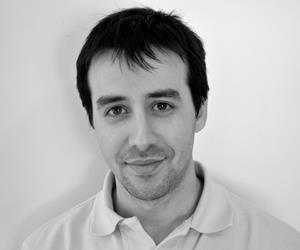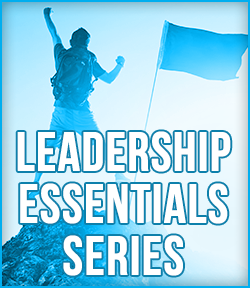I met Carlos Miceli on a street corner in Austin. It wasn’t quite as adventurous as it sounds, as we were both with groups that recognized each other at SXSW. Through Twitter, we’ve stayed in touch over the years. Lately, I’ve become fascinated with his portfolio of projects and wanted to find out how he maintains so much momentum.
Recently, he accepted a position as the Innovation Advisor to the Director of Citizen Care for the city of Buenos Aires, his home town. He’s still juggling five other major projects, and I haven’t seen him drop the ball yet.
Carlos, thanks so much for sharing with us today. I’m excited to share your story with my tribe. I have a hunch that there are valuable insights in there that we could learn from. First, let’s talk about your definition of success.
I’m not sure I try to define it much anymore. Satisfaction, tranquility, joy, gratitude, those are all things that come to mind when trying to determine if my life is headed where I want it to, but not success. The word and notion has a an external connotation in my mind. I think that the whole idea of success is about fulfilling some standard that society defines. The word makes me think of a popular perspective and agreement, so I let it be, undefined in my head.
Maybe I’m talking semantics, but I’m cool with it if it avoids me the confusion of having to use a word where it doesn’t seem I can win!
Was there a time when you had a different definition? What changed that?
Sure, I think I wanted to be successful at some point, and when I think of particular goals, like business goals, I do want to succeed there. However, that’s only because I think they’re just one fraction of my whole life plan, succeeding there is only a small piece of my puzzle.
I’m guessing that it changed because I grew, and when you grow, simplistic notions don’t fulfill you anymore. I think that making life about success is simplistic. I believe life is more complex, more paradoxical, so it’s hard to remain satisfied with success as a life philosophy.
Can you describe a typical day in your life?
I wake up and I quickly check my to-do list, which I always write down the night before. I go for a 20 minute run, just to get my blood moving. Then it’s breakfast while reading a book or some articles, and finally a shower and brushing my teeth. That is my morning routine, which I’d say has a 95% rate of daily adherence.
After that, I check my first task of the day and get started. At this moment, I have a job and five other campaigns open, from publishing my first book to teaching a course on creativity and innovation, building up an entrepreneurial community, to launching a couple of educational ventures. On my typical day, I do get some things done for almost all of them, and the way I can stay organized daily is because of my to-do list. I want to stress that any typical day of mine involves enough relaxation, and slowing down so I don’t burn out. I prioritize my health and balanced energy over any one thing. Unless it’s absolutely urgent, which it never is, I prefer to rest if I feel tired rather than pushing my boundaries just to feel a short burst of productivity. I always feel productive because I work the same every day.
Finally, I follow my night routine, which involves recording my achievements and mistakes of the day, review my short and long term goals, write my to-do list and block some websites for the next day, and right now I’m also trying to meditate just before bed.
The theme that jumps out at me is sustained excellence. You seem to be very purposeful at avoiding burnout or other pitfalls that could derail your progress. How do you focus on that?
The biggest thing I do to make sure I get enough rest is be very mindful of how I feel, and never attributing feeling tired or without energy to do something to anything other than my body needing to stop for a while. It’s a mindset that takes a while to stick, but it’s worth it: respect what your body is telling you.
You’ve taken a really unconventional approach to learning and developing yourself. Is this something you planned? Do you have a system you use when you want to learn something new?
Yes and no. I stick to a limited number of broad principles that can be applied to learning anything new, like trying to do a little bit every day, or trying to always be uncomfortable so I speed up the process. Josh Kaufman talks about this on his recent TEDx talk. What I’m currently doing is trying to learn one new thing every 30 days, but I’m trying very different skills, so I can’t use the same approach every time. Learning programming was different from rollerblading, which is different from learning about the history of Rome, my current experiment.
Are there any habits you’re working to develop next?
Meditating is a long-time elusive one. Very hard for me to stick with it, but I’m positive I’ll get there. Also, I’d like to find a more fun exercise to work out to. Running is fine. It works, but I’m positive there’s something more fun I can do. For example, I enjoy rollerblading a lot more, but the problem is that I can’t do it for less than 90 minutes, it’s too addictive, so I need something more balanced!
Oh, and I’d like to develop more habits on talking to friends abroad regularly. I’m currently experimenting with some systems so I talk with certain people every month, regardless of our time zones!
That sounds like fun! I hope I’m on the list.
——
Carlos Miceli is a business strategist, communicator and amateur philosopher. He has launched businesses from the US, China and Australia (where he lived for a year). Before he started carving his own path, Carlos worked as a Sales Executive for Top Clients in Telecom Argentina. At 21, he was the youngest employee in the highest profile sector of one of Argentina’s top companies. He successfully beat his sales objectives every year with clients such as Visa, AMEX, and ADT. He’s been a writer for Social Media Marketing, a guest writer for Ábaco (a Spanish journal of social sciences), and a speaker at TEDxLaRioja.
In addition to his role with the government, Carlos is working in many projects, mainly JumpLab and serving as an Assistant Professor in El Mundo de las Ideas. He sees himself as a lifelong learner and an advocate of mentorships and hands-on learning. He’s a voracious reader and a decent soccer player.









Recent Comments